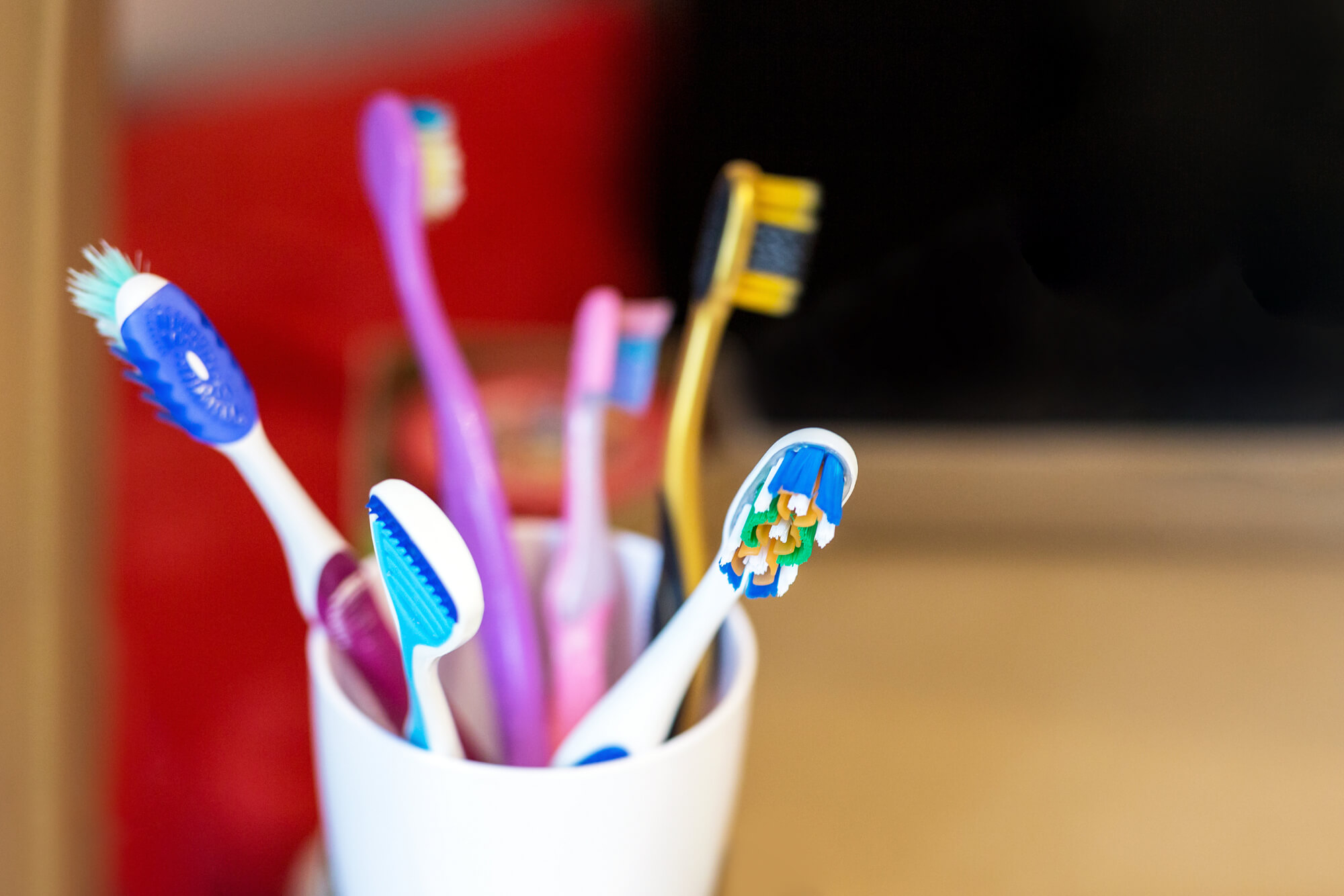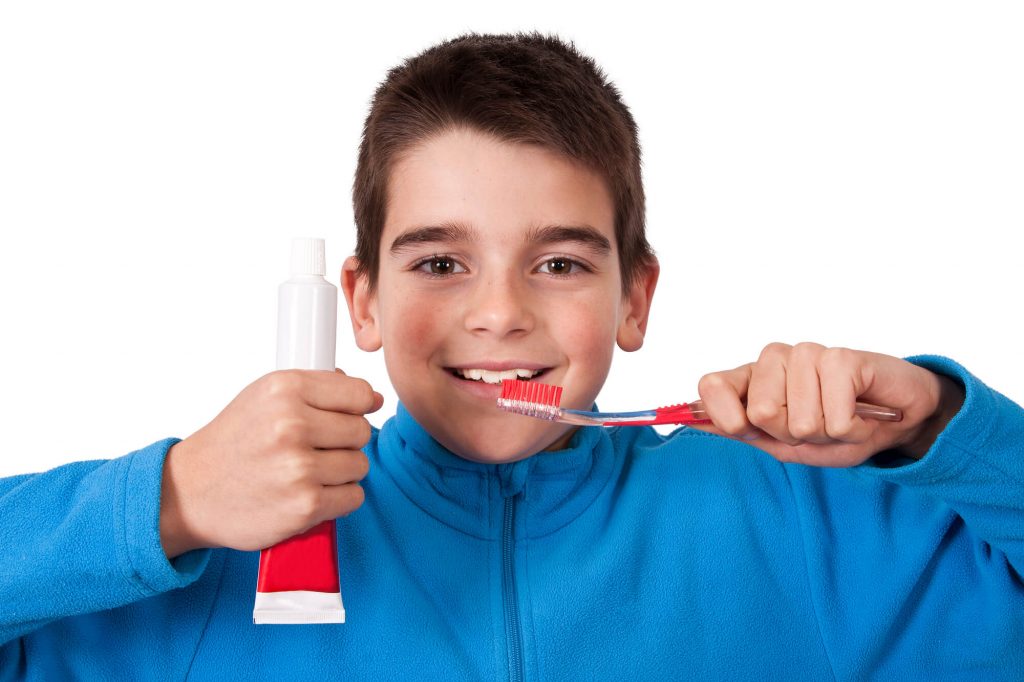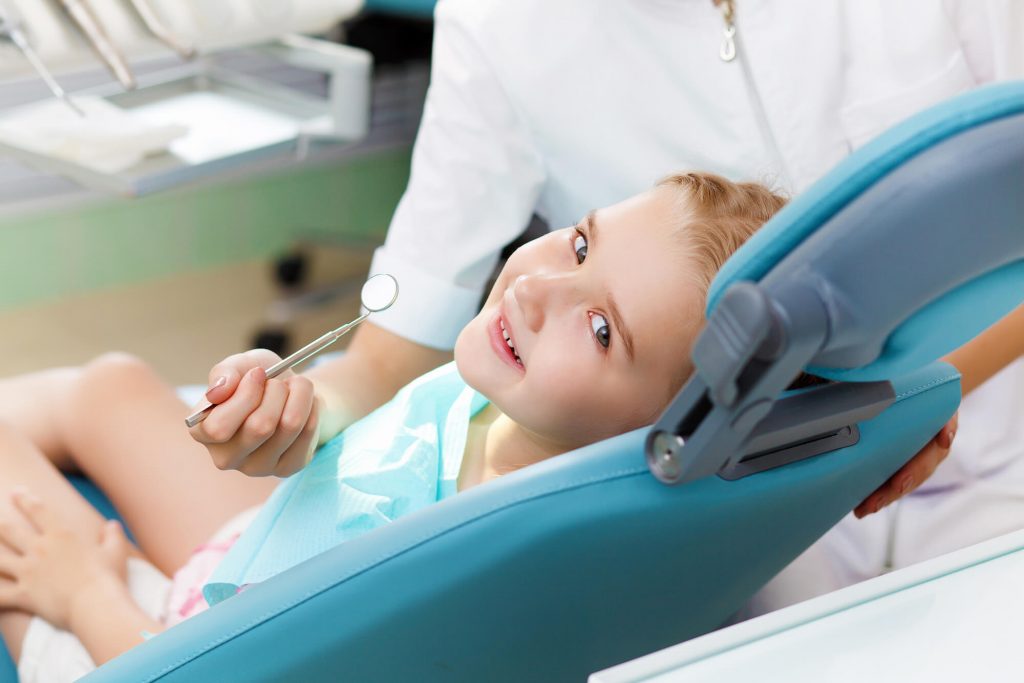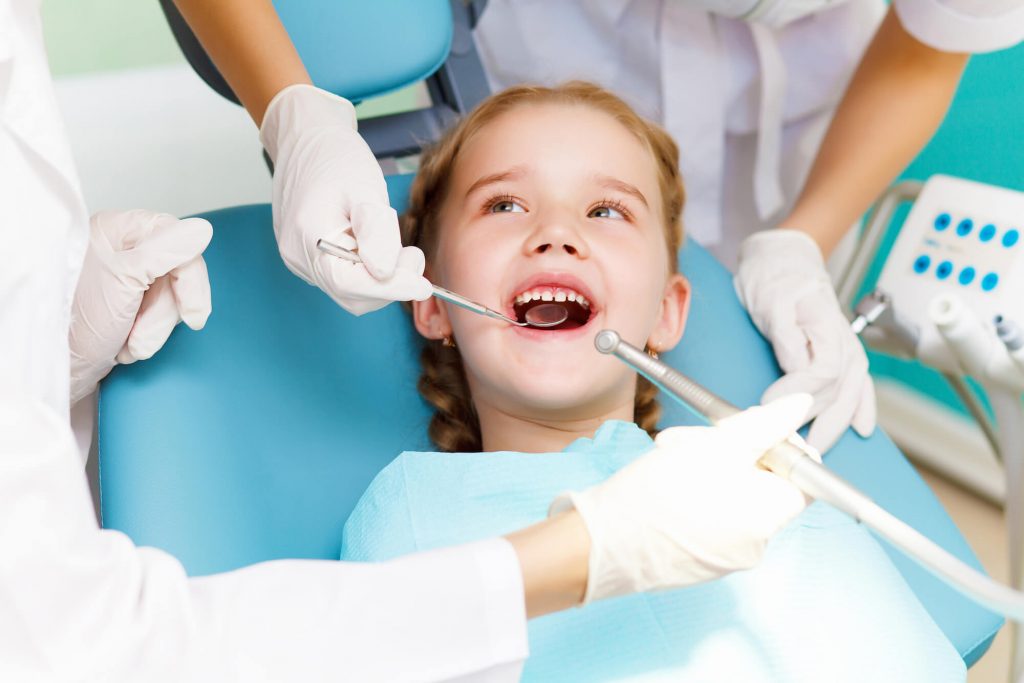Most dental problems kids face are similar to the ones that affect adults. However, children’s developing teeth are softer and more delicate than their permanent successors. Additionally, untreated dental conditions can lead to more severe issues as they grow up. For this reason, the best pediatric dentist in Las Vegas, NV, plays a crucial role in helping your child maintain a healthy and beautiful smile.
Maintaining good dental health is also essential for your child’s overall well-being, supporting both their physical and emotional development.
What Are the Most Common Dental Health Issues in Kids?
Tooth Decay
Young kids with a sugar-heavy diet who aren’t proficient at brushing and flossing are likely to develop tooth decay and cavities. As a sticky film of bacteria called plaque builds up on their teeth, the acid in it eats away at the enamel until it wears away at the tooth. Cavities form when bacteria in the mouth produce acids that erode tooth enamel, leading to dental decay. Certain foods high in sugar can contribute to this process by feeding the bacteria that cause decay.
It’s best to supervise and help your child brush their teeth, especially if they can’t grasp and control the toothbrush on their own. Proper brushing removes food particles, bacteria, and plaque and prevents tooth decay. Dental sealants can be applied to the back teeth, such as molars and premolars, to prevent cavities by creating a protective barrier against germs and food. Fluoride treatments can also help prevent tooth sensitivity and decay. Early childhood caries is a common and serious problem, especially in children younger than 3 years old, and young toddlers are particularly at risk. Early diagnosis and intervention are crucial to minimize long-term oral health issues. Schedule your child’s first dental visit when their first tooth appears to help prevent cavities and ensure early detection of any problems.
However, if your child has already developed a cavity, a pediatric dentist can treat it with a tooth filling. They’ll drill away the decay before filling the hole with a hard, tooth-colored composite material.
Bad Breath
Bad breath commonly affects younger children who don’t know how to brush their teeth correctly. Besides inadequate brushing, the common causes of bad breath include morning breath and food particles left on teeth.
The mouth has bacteria colonies that sustain themselves on leftover food, plaque, and fluid. The bacteria produce hydrogen peroxide as they eat, causing a bad smell in the mouth. Moreover, morning breath results from oral bacteria that multiply during sleep. You can help your child combat bad breath by ensuring regular brushing, flossing, rinsing with antibacterial mouthwash, and ongoing oral checkups. Oral hygiene education for both children and parents is essential to teach proper brushing and flossing techniques, helping to prevent bad breath and other oral health issues from an early age.
On the other hand, chronic bad breath or halitosis indicates a more significant issue, such as gum disease, chronic sinusitis, tooth decay, diabetes, or digestive problems. It’s worth noting that halitosis can also be a side effect of certain medications.
Sensitive Teeth
Since tooth sensitivity is uncomfortable, it usually disrupts a child’s focus and routine. Areas of decay, cavities, enamel erosion, newly erupted permanent teeth, bruxism, orthodontic treatment, or a cracked tooth can cause your child’s teeth to feel sensitive. Thankfully, a pediatric dentist offers a variety of treatments to reduce your child’s pain and discomfort. Fluoride treatments can also help by providing a protective shield that enhances resistance against sensitivity-related pain.
Pediatric Gingivitis and Gum Disease
Contrary to popular belief, gum diseases such as gingivitis can also occur in children. Early detection and prevention of gum diseases are important, as children who don’t observe proper oral hygiene are vulnerable to these conditions. Their symptoms include red, swollen gums that slightly bleed whenever they brush or floss their teeth.
You can help your child prevent gum diseases and gingivitis by teaching them how to clean their teeth thoroughly. However, if your child already has these conditions, you’ll want to take them to a pediatric dentist who can recommend specific treatment options for gingivitis or gum disease.
Canker Sores
Children sometimes develop painful canker sores on any part of the mouth, including their gums. Certain foods can trigger or worsen canker sores in children. Kids who have canker sores have difficulty eating and speaking. Although these sores are likely to recur, they go away within a week. However, if your child has a canker sore, it’s best to take them to the pediatric dentist so they can prescribe pain medication to alleviate your child’s discomfort.
Orthodontic Problems
Children experience minor or severe orthodontic conditions that can significantly impact their self-esteem. The most common factors that greatly influence how a child’s teeth grow and come together include genetics and the size and shape of a child’s jaw. An orthodontic condition can lead to oral hygiene issues, cracked teeth, and jaw problems if left untreated.
Early intervention is crucial to address malocclusion and ensure proper development of the dental arch. Dental appliances are often used to correct bite problems and misaligned teeth. Orthodontic treatment can help restore the child’s bite and maintain the integrity of the dental arch. In severe cases, restorative procedures may be necessary to restore function and appearance.
If your child has overcrowded teeth or bite problems such as an overbite, underbite, or open bite, it’s best to book an appointment with the pediatric dentist immediately. The ideal age for a child’s first orthodontic appointment is seven or eight.
Bruxism
Bruxism is an involuntary habit of clenching or grinding teeth. This condition is common among babies and toddlers who experience discomfort in their jaws when their primary teeth are about to erupt. While some kids stop doing this after their teeth emerge and develop, other children continue grinding their teeth.
If not managed, bruxism can lead to various oral health issues, including enamel erosion, tooth sensitivity, and jaw pain.
If you suspect your child has bruxism, you’ll want to consult a pediatric dentist to help reduce their chances of eroding their tooth enamels and developing tooth decay and sensitivity. Pediatric dentists focus on protecting a child’s teeth from the effects of bruxism, especially in young patients, by providing specialized care and preventive strategies.
Dental Emergencies
Children who are constantly physically active may experience a dental emergency, with dental trauma being one of the most common types in children. A dental emergency can happen while roughhousing with siblings, playing sports, or riding a bike. These accidents may result in a chipped, cracked, broken, or knocked-out tooth, and dental trauma can sometimes lead to tooth loss. Early intervention is crucial to minimize long-term effects on dental development and oral health.
You need to call a pediatric dentist immediately if your child’s permanent tooth accidentally falls out. While waiting for your appointment, retrieve the tooth and place it in a glass of saline solution, clean water, or milk to keep it moist. The pediatric dentist may still be able to reattach the tooth into the socket with the help of a retainer.
Factors Affecting Oral Health
A child’s oral health is shaped by a mix of genetic, environmental, and behavioral influences. Recognizing these factors is essential for preventing dental problems and supporting healthy smiles from an early age. Pediatric dentistry not only treats dental issues but also focuses on educating families about the importance of good oral hygiene and the risks associated with neglecting dental care. By understanding what affects your child’s dental health, you can take proactive steps to prevent common pediatric dental problems and ensure your child enjoys a lifetime of strong, healthy teeth.
Oral Habits
Certain oral habits, such as thumb sucking, tongue thrusting, and mouth breathing, can have a significant impact on your child’s dental health. Prolonged thumb sucking, especially beyond the toddler years, can lead to misaligned teeth and even jaw misalignment, affecting the way the upper and lower teeth come together. Tongue thrusting, where the tongue pushes against the teeth during swallowing or speaking, may result in dental misalignment and changes to your child’s bite. Mouth breathing, often caused by allergies or nasal congestion, can alter the position of the tongue and lower jaw, disrupting the balance of oral muscles and potentially leading to dental issues over time. Pediatric dentists are skilled at identifying these habits early and can offer guidance and interventions to help prevent long-term dental misalignment and other oral health problems.
Causes of Poor Oral Health
Several factors can contribute to poor oral health in children, with poor oral hygiene, diet, and genetics playing major roles. Frequent consumption of sugary foods and drinks increases the risk of tooth decay and dental caries, as the mouth produces acids that erode tooth enamel. Inadequate use of fluoride toothpaste or insufficient fluoride intake can further weaken enamel, making teeth more vulnerable to cavities. Poor oral hygiene habits, such as improper brushing or infrequent dental check-ups, allow plaque to build up and can lead to gum disease, tooth sensitivity, and even teeth grinding. To support your child’s pediatric dental health, it’s important to encourage proper brushing techniques, use fluoride toothpaste, and schedule regular dental check-ups with a pediatric dentist. Being alert to early signs of dental problems—like tooth sensitivity, gum disease, or changes in your child’s bite—ensures that any issues are addressed promptly, helping your child maintain a healthy smile for years to come.
Looking for a Pediatric Dentist in Las Vegas, NV?
The warmhearted and dedicated team of dental professionals at Dee for Dentist offers safe and comfortable dentistry for patients of all ages. Contact our office today at (702) 586-7800 or (702) 870-3818 to make an appointment.




